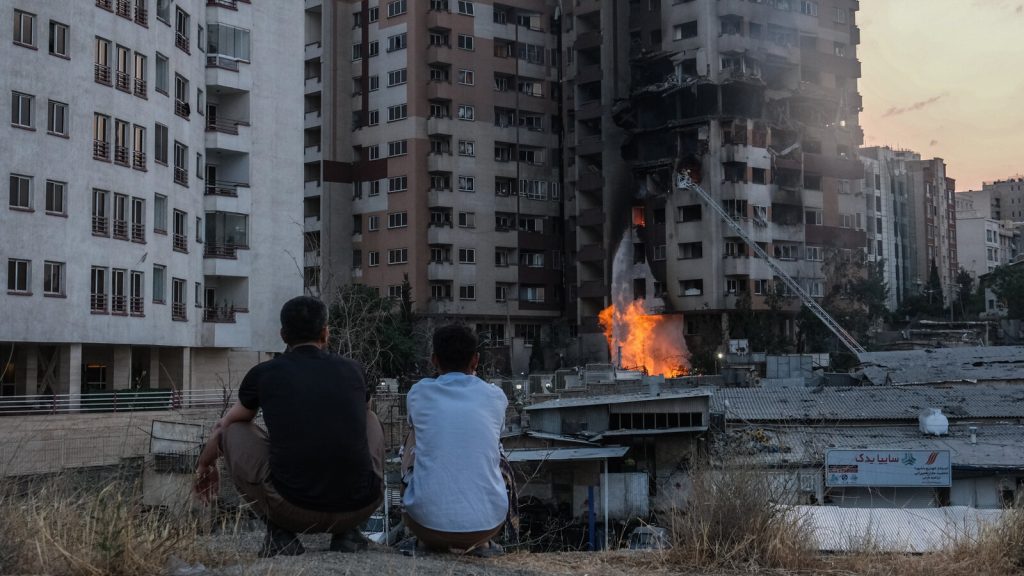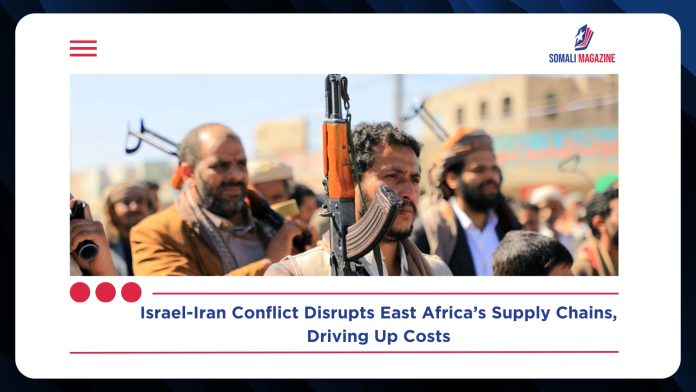Facebook Twitter (X) Instagram Somali Magazine - People's Magazine
The Israel-Iran conflict is causing significant disruptions to East Africa’s supply chains, with businesses bracing for higher costs and logistical challenges. As tensions escalate, key trade routes are being affected, leading to delays in shipments and increased expenses for importers and exporters across the region.
The conflict has already impacted global oil prices, with Brent crude surging by 8% to $75 per barrel. This spike is expected to drive up transportation costs, affecting industries reliant on fuel-dependent logistics. Shipping insurance premiums have also risen, further straining businesses that depend on maritime trade.
One of the most critical concerns is the potential disruption of the Strait of Hormuz, a vital corridor for oil and natural gas transport. Any blockade or attack in this region could severely impact fuel supplies, leading to inflationary pressures across East Africa.

Air freight operations have also been affected, with airlines rerouting flights to avoid conflict zones. This has reduced cargo capacity, making it more expensive for businesses to transport goods. Similarly, disruptions in maritime chokepoints are causing delays in shipments between Asia, Europe, and Africa, forcing companies to seek alternative routes.
The agricultural sector is particularly vulnerable, as rising fertilizer costs—driven by oil price volatility—could hamper grain production. Reduced farming operations in conflict-affected areas may also impact specialty crops like citrus and nuts, further straining food supply chains.
Experts warn that prolonged instability could lead to long-term supply chain disruptions, increasing costs for essential goods and services. Businesses in East Africa are now exploring contingency plans, including diversifying suppliers and adjusting procurement strategies to mitigate risks.
As the situation unfolds, governments and industry leaders are closely monitoring developments, seeking ways to safeguard economic stability amid the ongoing geopolitical crisis.

